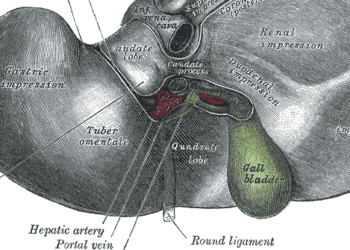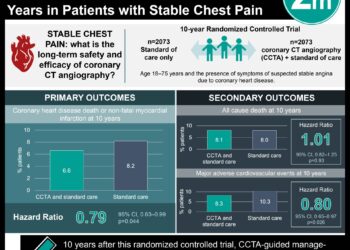The LRC-CPPT 1: Cholestyramine and coronary heart disease [Classics Series]
1. In the 1970s, observational data suggested a direct link between serum cholesterol levels and the risk of coronary heart disease (CHD).
2. This trial was one of the first large, randomized studies to demonstrate that reducing lipid levels with cholestyramine could significantly lower death from CHD and nonfatal myocardial infarction, when compared to placebo.
Original Date of Publication: January 1984
Study Rundown: CHD remains a significant cause of death and disability around the world. In the 1970s, some observational data showed a direct relationship between serum lipid levels, particularly low-density lipoprotein cholesterol (LDL-C), and risk of CHD. It was suspected that LDL-C was heavily involved in the pathophysiology of atherosclerosis and thereby responsible for CHD. It was also understood at the time that serum lipid levels could be altered by changing diet and taking medications, though a causal relationship between cholesterol levels and CHD had yet been firmly established.
The Lipid Research Clinics Coronary Primary Prevention Trial (LRC-CPPT) was a large randomized trial started in the mid-1970s to address this relationship. Patients were largely high-school educated white men with elevated cholesterol levels. They were randomized to treatment with either cholestyramine or placebo, in addition to cholesterol-lowering diet and nutritional counseling. Treatment with cholestyramine led to significantly larger reductions in total cholesterol and LDL-C levels when compared to placebo therapy. Patients taking cholestryamine also experienced significantly lower rates of death from CHD and nonfatal myocardial infarction. Despite the study’s homogeneous population and limited generalizability, this was one of the first large-scale randomized trials to demonstrate a consistent reduction in CHD after lipid lowering therapy.
Click to read the study in JAMA
In-Depth [randomized double-blind controlled study]: This double-blind, placebo-controlled, randomized trial was conducted at 12 sites in the United States. Men between 35 and 59 years of age, with a plasma cholesterol level ≥6.9 mmol/L (265 mg/dL) and LDL-C level ≥4.9 mmol/L (190 mg/dL) were recruited for the study. Exclusion criteria included triglyceride levels averaging >3.387 mmol/L (300 mg/dL), type III hyperlipopriteinemia, clinical manifestations of CHD (myocardial infarction, angina pectoris, ECG abnormalities, heart failure), diabetes mellitus, hypothyroidism, nephrotic syndrome, obesity, and hypertension. A total of 3806 participants were randomized to treatment with either cholestyramine 24 g daily or an equivalent amount of placebo and followed for an average of 7.4 years. All patients were offered a cholesterol-lowering diet along with nutritional counseling. The primary endpoint was a composite of death from CHD and nonfatal myocardial infarction. Other endpoints were all-cause mortality, atherothrombotic brain infarction, and arterial peripheral vascular disease.
Compared to placebo, treatment with cholestyramine significantly reduced total cholesterol (8.5%, p < 0.001) and LDL-C (12.6%, p < 0.001). At 7 years, the primary endpoint occurred significantly less frequently in the cholestyramine group as compared with the placebo group (8.1% vs. 9.8%; risk reduction 19%, 90%CI 3 to 32%, p < 0.05). There were significantly fewer CHD deaths (1.6% vs. 2.0%; risk reduction 24%) and nonfatal myocardial infarctions (6.8% vs. 8.3%; risk reduction 19%) in patients taking cholestyramine. There were no significant differences between the two groups in the incidence of brain infarction or peripheral vascular disease, and no difference in all-cause mortality. Gastrointestinal side effects were common during the trial. In the first year, the rate of such side effects were significantly higher in the cholestyramine group (68% vs. 43%). These rates were quite similar by year 7 (29% vs. 26%).
Image: PD
©2016 2 Minute Medicine, Inc. All rights reserved. No works may be reproduced without expressed written consent from 2 Minute Medicine, Inc. No article should be construed as medical advice and is not intended as such by the authors, editors, staff or by 2 Minute Medicine, Inc.






